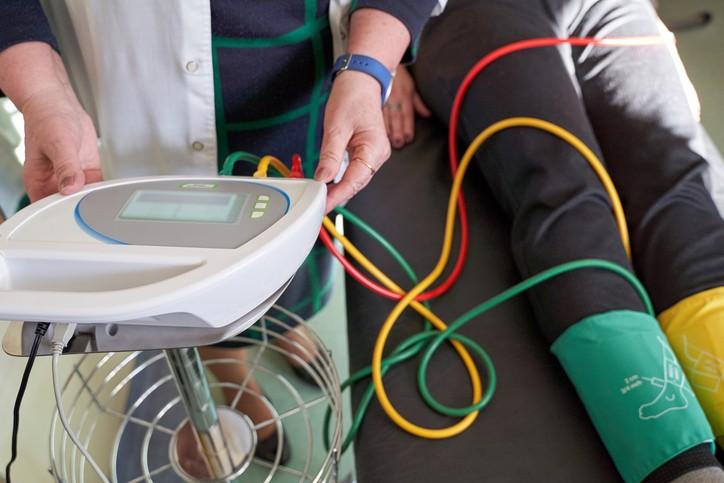Is Postural Orthostatic Tachycardia Syndrome (POTS) Considered a Disabling Condition?
On Behalf of Disability Insurance Law Group | | Disability Insurance – General TopicsAt Disability Insurance Law Group, our nationwide attorneys represent clients in all 50 states whose physical and mental impairments require them to pursue their disability insurance coverage for benefits—including those who have Postural Orthostatic Tachycardia Syndrome (POTS).
According to the Cleveland Clinic, POTS is a type of dysautonomia, which is a nervous system issue that can cause people to feel dizzy and faint when they move. Symptoms can vary from mild to severe, limiting a person’s ability to perform everyday activities like eating, walking, or sitting upright.
According to Johns Hopkins Medicine, an estimated 1-3 million people in the United States have postural orthostatic tachycardia syndrome (POTS). However, precise numbers are difficult to obtain because the condition has a range of symptoms, and many people are unaware of it. Some experts say that the number of new POTS patients may have increased as a result of COVID-19, with estimates of at least 1 million additional cases.
To qualify for long-term disability insurance (LTD) for POTS, our clients must meet certain criteria and provide evidence that their condition affects their daily life and ability to work. Here, we discuss what that means for their claims and how we can help.
What Does POTS Stand For?
Each word of “Postural Orthostatic Tachycardia Syndrome” has a meaning:
- Postural: Related to the position of your body.
- Orthostatic: Related to standing upright.
- Tachycardia: A heart rate over 100 beats per minute.
- Syndrome: A group of symptoms that happen together.
Usually, the body’s autonomic nervous system balances heart rate and blood pressure to keep blood flowing at a healthy pace, no matter what position the body is in. People with POTS can’t maintain their blood pressure, which causes a variety of symptoms. Each POTS case is different, requiring a complete medical examination to identify and treat.
What Causes POTS?
Researchers don’t fully understand the causes of POTS, but it is more common in women than men and is more likely to develop in adolescents and young adults.
However, people are at a higher risk of developing POTS after experiencing the following stressors:
- Physical trauma, such as a head injury.
- Pregnancy.
- Significant illnesses, such as viral illnesses like mononucleosis or severe infections.
- Surgery.
People who have certain autoimmune conditions, such as Sjogren’s syndrome, lupus, and celiac disease, are also more likely to develop POTS.
What are the Symptoms Associated With POTS?
POTS symptoms vary from person to person and may include:
- A pale face and purple discoloration of the hands and feet if the limbs are lower than the level of the heart.
- Brain fog: trouble focusing, remembering, or paying attention.
- Excessive sweating.
- Forceful heartbeats or heart palpitations.
- Headaches.
- Intolerance of exercise or a prolonged worsening of general symptoms after increased activity.
- Lightheadedness with prolonged sitting or standing that can lead to fainting.
- Nausea and vomiting.
- Severe and long-lasting fatigue.
- Shakiness.
In severe cases, POTS symptoms can prevent a person from being upright for more than a couple of minutes. This can significantly affect all personal, school, work, and social life aspects.
How is POTS Diagnosed?
A general practitioner can diagnose POTS using either a 10-minute standing test or a head-up tilt table test; occasionally, other tests are performed to identify specific characteristics of POTS present in some patients.
In some cases, patients are referred to specialists to perform additional tests, which may include, but are not limited to:
- Blood tests.
- Urine tests.
- Heart and blood pressure tests, including an echocardiogram, ECG, and 24-hour blood pressure and heart rate monitoring.
If you have been diagnosed with POTS, and the condition has limited your ability to engage in any substantial gainful activity that has lasted or is expected to last for at least one year or result in death, you may be eligible to file a disability claim with your personal or employer-provided insurance provider. We can help.
Contact Our Skilled POTS Disability Insurance Claims Attorneys Today for Help
At Disability Insurance Law Group, our attorneys have more than 50 years of combined experience in protecting the insurance rights of individuals in insurance benefit claims nationwide.
We can help with your claim at any stage, including filing an initial claim, responding to coverage disputes, or appealing a denial.
Contact our skilled nationwide insurance claims attorneys today by calling (954)-989-9000 or online to schedule a free and confidential case assessment. We can use our over five decades of combined experience to help you confidently move forward.





